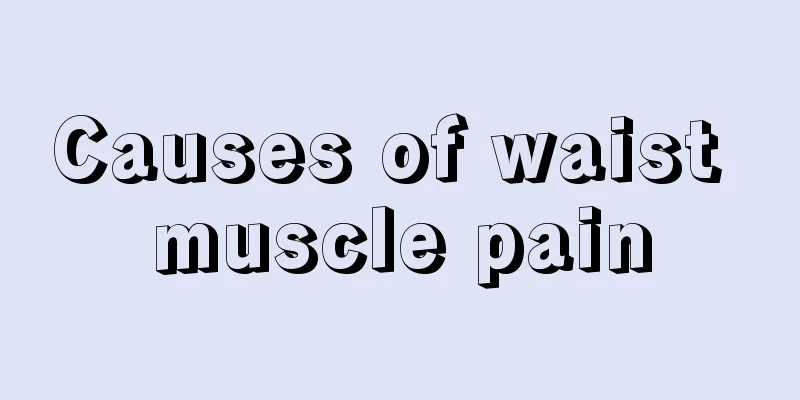I feel dizzy, nauseous and want to vomit when I move my head

|
If there is insufficient blood supply to the brain, the body's mental state will become sluggish first, and the head will feel groggy every day. Sometimes memory loss and forgetfulness may occur. In severe cases, facial paralysis or even cerebral infarction and death may occur. Once you discover this situation, you must actively go to the hospital for examination and cooperate with the doctor for treatment. Cerebral ischemia refers to insufficient blood supply to a certain part of the brain, which causes brain function disorders. The causes of insufficient blood supply to the brain are often related to cerebral arteriosclerosis. The incidence of cerebral ischemia is high. According to statistics, 80% of people over 80 years old suffer from cerebral ischemia, and 70% of people over 60 years old suffer from cerebral ischemia to varying degrees. The main symptoms are recurrent dizziness, lightheadedness, and headaches, often accompanied by restlessness, tinnitus, irritability, insomnia, memory loss, inattention, and forgetfulness. Studies have shown that if insufficient blood supply to the brain is not treated promptly, it may cause cerebral infarction or even dementia. Causes 1. Dislocation of the atlantoaxial joint and C5 and C6 joints of the cervical vertebrae stimulates the vertebral artery, causing stenosis of the arterial lumen or vasospasm, reducing the blood flow and causing insufficient blood supply to the supplied brain area. 2. Hemodynamic disorder: when blood pressure drops and cardiac output decreases, the brain tissue is not supplied with enough blood. 3. Increased blood viscosity, slow blood flow and changes in blood components caused by certain reasons may also cause insufficient blood supply. 4. Microthrombosis. Microthrombosis is the detachment of atherosclerotic plaques, which form microemboli in the blood flow. They flow to the small arteries and block the blood vessels, resulting in local blood supply deficiency in the brain. Classification Clinically, cerebral ischemia is divided into acute and chronic. Acute cerebral ischemia (acute cerebral ischemia) is a common disease among the elderly and has been given more attention clinically, while chronic cerebral ischemia rarely attracts people's attention. Clinical manifestations 1. Abnormal mental consciousness If you always feel sleepy and feel groggy all day long, it is not caused by excessive fatigue, but a precursor sign of insufficient blood supply to the brain. Some people also experience insomnia, some have some changes in personality, such as being lonely, taciturn or indifferent, some are talkative and irritable; some may experience brief loss of consciousness or intellectual decline, or even loss of normal judgment, all of which are related to insufficient blood supply to the brain. 2. Motor nerve dysfunction This type of premonitory symptom is the most common. Due to insufficient blood supply to the brain, the nerves controlling the body's motor functions malfunction. Common manifestations include sudden crooked mouth, drooling, difficulty speaking, slurred speech, aphasia or inarticulate speech, difficulty swallowing, weakness or poor movement of one limb, dropping of held objects, unsteady walking or sudden falls, and some people experience limb spasms or twitching. 3. Sensory dysfunction
Due to insufficient blood supply to the brain, the analytical areas, sensory organs and sensory nerve fibers of the brain are affected, often manifesting as numbness of the face, tongue, lips, and one side of the limbs or a foreign body sensation; some have blurred vision or even sudden temporary blindness; many people have sudden dizziness; some have spontaneous limb pain; others suddenly experience tinnitus, hearing loss, etc. treat 1. Remove risk factors Such as treating high blood pressure, quitting smoking, and prohibiting excessive drinking. 2. Antiplatelet drugs Aspirin, an antiplatelet drug, is the first choice. It can effectively prevent platelets from clumping together, which is good for blood circulation and blood supply to the brain. 3. Anticoagulant drugs Anticoagulants and antiplatelet drugs have the same effect, both of which can improve blood flow, increase blood supply to the brain, and reduce the incidence of cerebral ischemia. 4. Surgery If the carotid artery is severely narrowed (more than 70%), carotid endarterectomy or carotid stenting can be used if necessary. |
>>: What to do if you feel nauseous and want to vomit after smoking
Recommend
How to treat early lung cancer in the elderly? Treatment methods for early lung cancer in the elderly
Lung cancer is a common cancer with a high mortal...
What can I use to wash off oil stains
People who often need to wash clothes know that i...
How do patients with bile duct cancer exercise?
Many cancer patients may already be tired of stay...
What are the symptoms of lung cancer? If you have these 4 symptoms, be careful that it is lung cancer
Everyone is very afraid of cancer. The reason for...
What causes pain in the nose? I actually got this disease!
Pain in the nose is largely caused by getting inf...
How to prevent rectal cancer
Rectal cancer is a common anorectal disease. It i...
Does lung cancer affect the fetus?
In fact, this is a concern of many young patients...
Can brain cancer be treated in its early stages?
Can brain cancer be treated in its early stages? ...
How can I refresh myself
Nowadays, whether students or office workers, eve...
High blood pressure is actually the root cause of these diseases!
There are many causes of high blood pressure. Stu...
Early prevention, diagnosis and treatment of gastric cancer
Gastric cancer is the most common malignant tumor...
Cancer signals hidden in urine
There is no physical discomfort, but only blood i...
A lot of blood was shed the first time
When girls have sex for the first time, they usua...
What are the early signs of laryngeal cancer?
In recent years, laryngeal cancer has become a ma...
How to process and preserve fresh peach gum?
Many friends think that freshly collected peach g...









